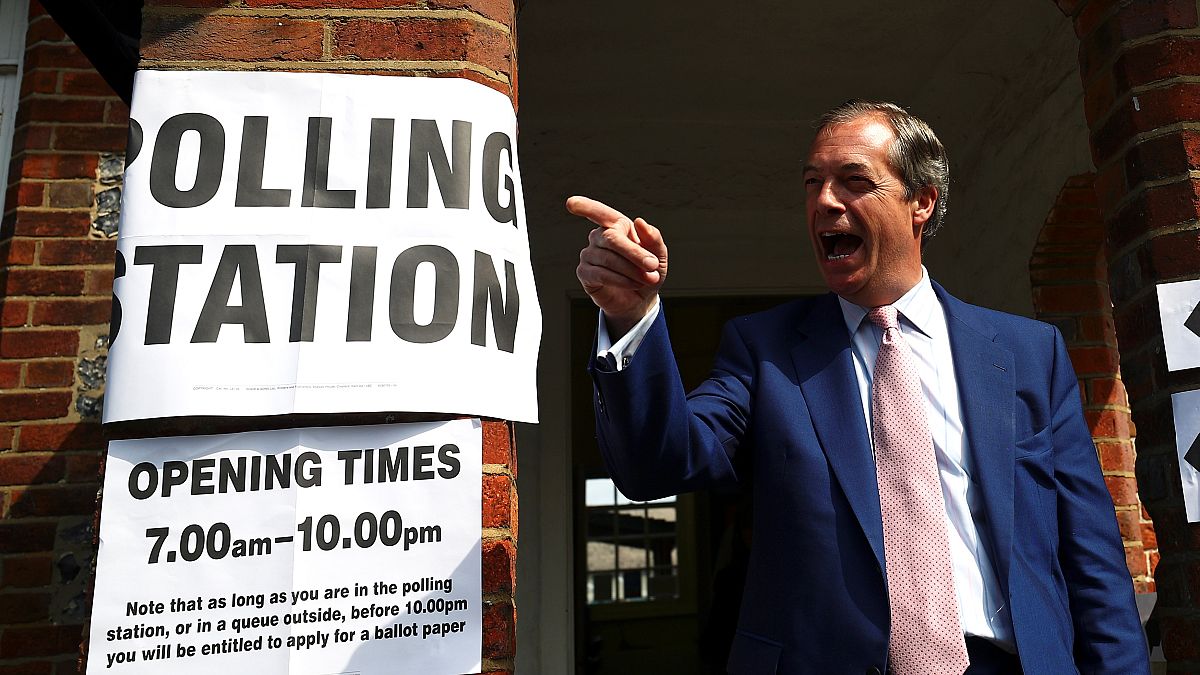The UKIP have lost all of their seats in the European Parliament, rendering the future of the party dubious.
"Never give up" says UKIP Chairman Kirsten Harriot following the flop of her party in the European elections.
The UKIP, with 3.57% of the votes, won approximately just one tenth of Farage's Brexit Party's votes (31.71%). This means that UKIP has failed to elect a single MEP to parliament, losing all of the 24 seats won in 2014.
Harriot said in a statement that it was "very unlikely" that the party would dissolve as a result of the elections, or the emergence of the Brexit Party.
"UKIP has had its fair share of disappointment in elections but we have always seen ourselves as an anti-establishment party" she noted.
The party took the defeat graciously on social media, hinting on that big changes may be on the horizon for the UKIP.
According to Harriot however, this does not mean that the party will take a step back from politics. Rather, they intend to "assess where improvements need to be made" while continuing to support "local communities with the common sense policies we have developed over the years."
With their former-leader Nigel Farage backing the triumphant Brexit Party however, their chances of survival seem dubious.
Background UKIP:
UKIP are a right-wing nationalist party whose most significant self-proclaimed achievement to date has been the passing of the Brexit referendum in 2016.
Since then, the party believes that the results of the referendum have been betrayed by the ruling Conservative party, Labour, and the Liberal Democrats.
According to UKIP leader Gerard Batten, UKIP is "the only real opposition to our cross-party political establishment."
During the lead up to the Brexit referendum, UKIP was led by Nigel Farage who resigned as leader two weeks after the referendum.
In December 2018, Farage left the UKIP altogether to found his own party. "There is a huge space for a Brexit party in British politics but it wont be filled by UKIP," he said.
Since Farage left, UKIP has had numerous leaders, the current of which is MEP Gerard Batten. UKIP are vehemently anti-political correctness, and anti-immigration and have been criticised for lobbying on behalf of the far-right.
Farage's Brexit Party
Farage founded the Brexit Party in January 2019, and has won significantly more votes in the European Elections than the Conservatives and Labour combined.
The early success of his party has made British history, claims Farage.
Farage has spent his entire political career advocating for Britain's departure from the EU.
The politician, since succeeding in pressuring the former conservative party into holding a Brexit referendum has advocated continuously since then for its implementation.
Farage is openly critical of PM Theresa May, who he labelled on Friday "the worst prime minister in Britain's history."
The Brexit Party has efficiently utilised the UK's frustration with the ruling government, and the standstill chaos of Brexit.
Farage's party has gained support from the all economic and social backgrounds in England, as well as both left and right leaning voters.
The UKIP are to maintain friendly relations with the Brexit-Party despite the election results. "UKIP respects anyone working to achieve the brexit that 17.4 million people voted for in 2016" says Harriot.
As of yet, we cannot know if Farage has wiped out his former party for good, but UKIP's prospects and place on the British political spectrum however, are doubtful.
